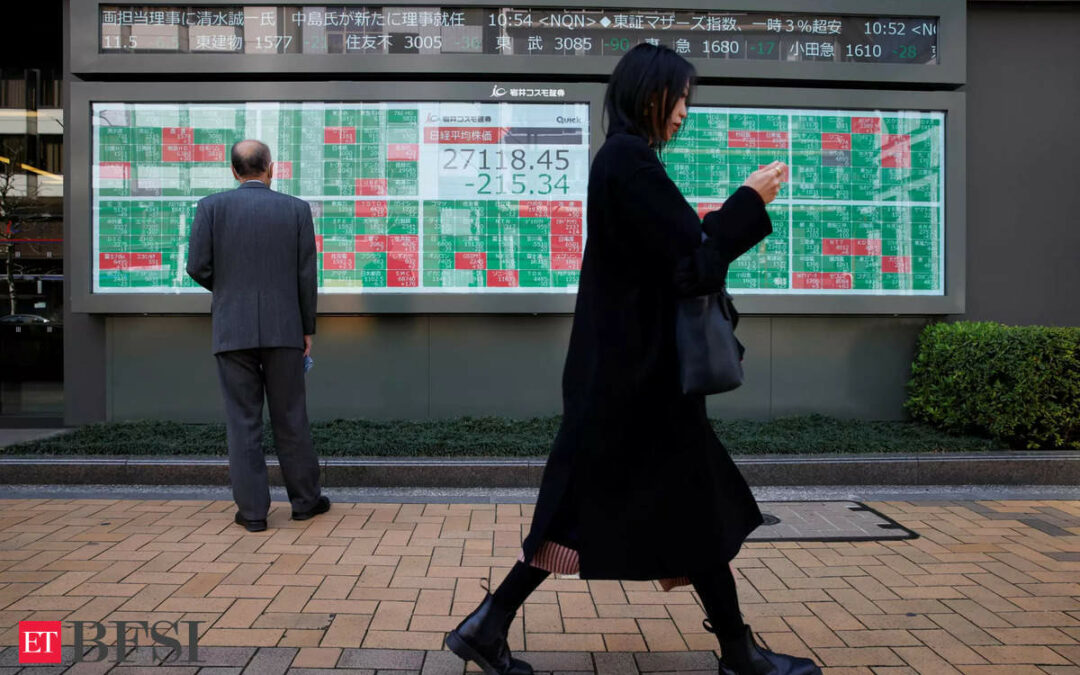Japan’s Nikkei share average snapped a three-day winning streak on Thursday, as automakers and banking stocks fell after the Federal Reserve’s signal to end its tightening cycle boosted the yen sharply and pushed U.S. Treasury yields lower.
The Nikkei ended 0.73% lower at 32,686.25 after rising as much as 0.6% earlier in the session. The index opened higher tracking overnight Wall Street gains.
The Dow Jones industrial average hit its first record closing high since January 2022 after the Fed flagged its interest rate-hiking policy is at an end.
The Japanese yen hit a four-and-half-month high against the dollar, while the U.S. benchmark 10-year bond yield extended declines in Asian hours after hitting its lowest since August overnight.
A stronger yen tends to hurt exporter shares as it decreases the value of overseas profits in yen terms when firms repatriate them to Japan.
“Japanese equities fell due to the yen’s strength and falling Treasury yields. The Fed decision was more dovish than expected,” Takehiko Masuzawa, head of trading, Phillip Securities Japan, said.
The broader Topix fell 1.43% to 2,321.35.
The auto and autoparts sector lost 3.98%, its biggest daily decline since Oct. 4, to become the worst sector among the Tokyo Stock Exchange’s 33 industry sub-indexes.
Toyota Motor lost 3.82% to become the biggest drag on Topix. Honda Motor fell 5%.
The banking sector slipped 3.82% with Mitsubishi UFJ Financial and Sumitomo Mitsui Financial Group losing 3.54% and 5.25%, respectively.
The insurance index was down 3.62%.
“It was natural that those sectors fell after the Fed’s decision but all the bad market cues were out so far. Investors are now eyeing the Bank of Japan’s (BOJ) policy meeting,” said Phillip Securities Japan’s Masuzawa.
The BOJ is scheduled to hold its two-day policy meeting starting Monday.
Recruit Holdings jumped 7.21% after the staffing agency announced a buy back of up to 200 billion yen ($1.41 billion) of its own stocks.










